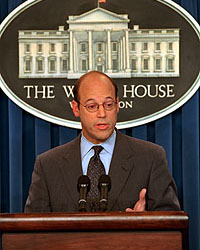A Quote by Bill Gates
Countries which receive aid do graduate. Within a generation, Korea went from being a big recipient to being a big aid donor. China used to get quite a bit of aid; now it's aid-neutral.
Related Quotes
The reason the world is in the spot it's in is because North Korea entered into an agreement and then did not keep up their terms of the agreement. They received aid in return for promising not to develop nuclear weapons. They took the aid, they ran with the aid and then they developed a nuclear weapons anyway.
Toward the middle and end of the Fifties, West European countries became somewhat more important as providers of aid to underdeveloped countries. It was partly due to the prodding of the United States that these countries, as they regained economic viability, should shoulder their share of the aid burden.
The notion that aid can alleviate systemic poverty, and has done so, is a myth. Millions in Africa are poorer today because of aid; misery and poverty have not ended but increased. Aid has been, and continues to be, an unmitigated political, economic, and humanitarian disaster for most parts of the developing world.
Legal aid gets a bad press. Some rail against handing taxpayers' money to criminals; others attack fat cat lawyers, while some argue that we spend far more on legal aid than other countries. But let's get some facts straight: saying that legal aid is just about criminals is wrong - most goes to people before any decision is taken on their guilt.
Almsgiving tends to perpetuate poverty; aid does away with it once and for all. Almsgiving leaves a man just where he was before. Aid restores him to society as an individual worthy of all respect and not as a man with a grievance. Almsgiving is the generosity of the rich; social aid levels up social inequalities. Charity separates the rich from the poor; aid raises the needy and sets him on the same level with the rich.
Being reliant on legal aid is probably inconceivable to most of us. But this is no different from other branches of the welfare state established at the same time as our legal aid system - being diagnosed with a major illness and needing the NHS, or losing a job and needing the support of social security.






























